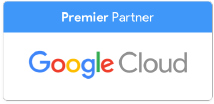It's the sophisticated cyber attacks that hit the headlines. But the more commonplace crimes, like spam and phishing, can be just as devastating. Having your inbox bombarded with junk mail is annoying. But, in many cases, the damage goes beyond mere annoyance to something more permanent and far-reaching for your business.
Both spam and phishing put your company's data at risk. It only takes one leak of sensitive information to erode consumer confidence, expose your system to hackers, and put you in legal hot water.
And scams like this are on the rise. With pandemic restrictions keeping many of us at home and online, industrious hackers are upping their game. The FBI's Internet Crime Complaint Center received a record number of complaints in 2020, and among the most common were phishing scams that caused a total loss of over $54 million for those targeted.
However, companies using Google Workspace can breathe easily. The cloud-based suite has several stringent safeguards in place to cut spam and prevent phishing. Integrated across your systems and devices, these represent a robust firewall that can block most threats.
Phishing attacks and your Google account
As the web has evolved, phishing has grown more sophisticated, but the underlying formula remains the same. This type of online crime relies on deception – fooling you into thinking you're receiving an email from a legitimate source and then using that faux-authority to extract personal information such as your bank account details or social security number.
These emails may look like they came from your bank, a company client, colleagues, a well-known retailer, or even the government. They'll generally ask you to click a link or download a file. All this is to harvest your data via fake websites or malware.
This is also known as spoofing, and it's not always easy to spot. Spammers are getting very good at forging email addresses, so that message in your inbox looks like it's come from someone you trust.
That's why email authentication is so crucial, and it's why Google uses the Domain-based Message Authentication, Reporting & Conformance (DMARC) program.
This program ensures that the sender you see on your email matches the identity details received by your server and lets domain owners tell their email providers how to handle unauthenticated messages. If your company uses Google Workspace, your administrator can easily set up DMARC, so forged emails won't slip by your defenses.
Filtering out spam
Billions of emails are sent worldwide every day, and over 80% of them are spam.
Think of all the emails flowing in and out of your organization daily. If your spam rate is anywhere close to the global average, that's a huge weak spot and cause for concern.
Gmail is known as one of the most secure email platforms available. It boasts sturdy and customizable filters that administrators can tweak to include approved senders, create blocked lists and establish quarantine holds that allow you to review suspicious messages.
But while it's relatively easy to block spam from outside your domain, it can be harder to filter threats from within. Google counters this with a zero-tolerance approach – if a Workspace user is the source of the spam, Google can immediately suspend them. If the spam is domain-wide, the company may suspend the entire Workspace account and deny services until the issue is resolved.
Spam and phishing won't go away. These nuisance emails are an unfortunate feature of online life, but they can be minimized with adequate data protection measures that use the cybersecurity tools in Google's arsenal.
If you're looking to strengthen your cybersecurity framework, we can help. A Google Cloud premier partner, UpCurve Cloud specializes in locking down Google Workspace installations and tailoring them to your organization's needs. Get in touch today to book a consultation or find out more.
Contact Us to Learn More about Transforming Your Business
